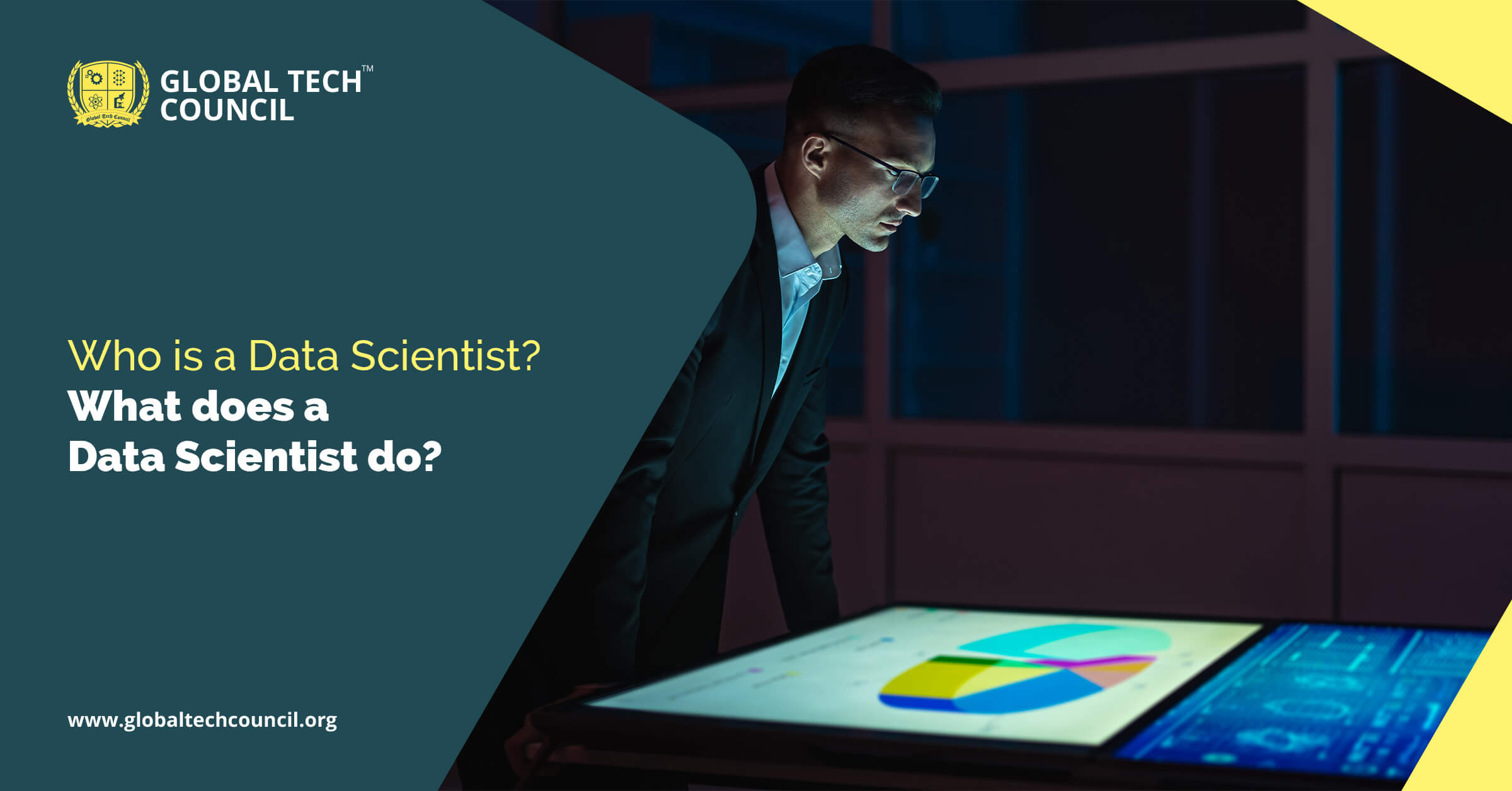
If the domain of Data Science interests you, then you have landed on the right page. This article talks about who data scientists are, what are their roles and responsibilities and how to become a certified professional in this domain.
Table of Contents
- Who is a Data Scientist?
- Roles and Responsibilities of a Data Scientist
- Why Choose Data Science Domain as a Career?
- Concluding Lines: How to Learn Data Science and Become a Certified Professional?
Who is a Data Scientist?
A Data scientist is one who estimates unknown data by writing complex algorithms and building statistical models. He is responsible for interpreting large amounts of data and carrying out analysis to find trends and gain more in-depth insights.
Data scientists aid companies in addressing afflicting challenges by extrapolating and sharing such useful insights. They use a mixture of computer science, simulation, statistics, analytics, and math skills, as well as sound business judgment, to find answers to major questions that assist companies in making objective decisions.
Roles and Responsibilities of a Data Scientist
If you are planning to become a Data Scientist, then be prepared for deliverables such as Prediction such as predicting a value based on inputs, Classification such as whether it is spam or not, recommendations, pattern detection and grouping, Anomaly or fraud detection, image, video, or text recognition, Produce actionable insights with the help of reports, Visualizations, etc. Apart from this, Data Scientist is also responsible for Automated processes and Decision-making, Segmentation, for instance, demographic-based marketing, Optimization, and Forecasting sales revenues.
In general, he is responsible for asking the right questions to begin the discovery process. Based on that, he acquires data, processes and cleans that data, and integrates and stores the desired data. Also, he is responsible for initial data investigation and exploratory data analysis and choosing potential models and algorithms. Now when models and algorithms are chosen, data scientists apply data science techniques, such as machine learning, statistical modeling, and artificial intelligence, to get the desired results. After this, he is responsible for measuring and improving results, presenting outcomes to stakeholders, and making adjustments based on feedback. And this process, right from discovery to making adjustments, keeps going to solve a new problem.
But do remember, if you are seeking a career in the data science domain, you must have:
- Sound knowledge of analytical tools
- Developing software, data models, and algorithms
- Experience using web services such as Redshift, S3, Spark, etc.
- Programming advanced computing
- Executing predictive analytics
- Data Visualization
- Hands-on experience with Hive or Pig
- Proficient in SQL
Why Choose Data Science Domain as a Career?
There are various compelling reasons to learn data science in the long run. The first and foremost is that it brings better career opportunities and offers various job profiles as one can begin with as a Data Analyst, Data Engineers, Business Intelligence Specialists, and Data architects as well. Secondly, tech giants such as Amazon, Google, Facebook, and many others are hiring professionals and paying decent salaries to those skilled Data Science professionals. In addition, the salaries of data science professionals are skyrocketing.
According to Payscale, the average salary for a Data Scientist is $96,494, and according to Indeed, the average salary is $121,907 per year in the United States. Glassdoor reports that the average salary is $1,13,415 in the US and ₹10,00,000 in India. As this domain has so much to offer to beginners and professionals, it is gaining momentum worldwide.
Concluding Lines: How to Learn Data Science and Become a Certified Professional?
Demand for data science developers is soaring at present. If you are planning to become one, Global Tech Council can be your one-stop solution.
Certified Data Science Developer Certification offered by Global Tech Council focuses on analyzing and testing the core concepts of data sciences, right from elementary concepts such as statistics, data management, and analytics to advanced topics like neural networks and machine learning and R programming.
The course covers the following topics:
- Basics of Python for Data Science
- Data Preprocessing
- Data Visualization
- Introduction to Machine Learning
- Supervised Learning- Regression
- Supervised Learning- Classification
- Unsupervised Learning
- Dimensionality Reduction
- Recommendation Engine
- Associate Rules
- Time Series and Statistics
Want to become a Data Science Developer? Why wait? Enroll in the best online certification courses and become a data science expert. Check out more at Global Tech Council.